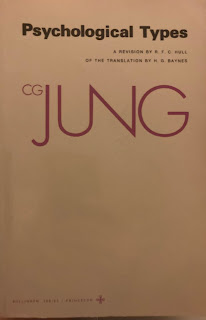Slowing down, speeding up
Last Friday was the three-week mark since I "launched my book project" and I am pleased with the results of my first three weeks of daily blogging.
What the writing has helped to do is to locate myself on the map that shows the pathways to effective dissemination of one's new ideas to those who are meant to receive them.
I have ideas, ideas that I think people need to receive. But just as my wife sometimes admonishes me to use fewer words (not so much recently, I am pleased to say) orally, I am now going to try to drastically reduce the ratio of words written to words read and to reduce the frequency of posting. I am releasing myself from the obligation to write a post every day. Part of the reason I am able to do this is that tonight at 8pm (ET) I am meeting with my morning Focusmate partner to discuss the possibility of a weekly accountability relationship. Since we are both engaged in the labor of writing words that we believe are inspired, that we believe need to be read, I am hopeful that our meetings will help me break up my project into concrete goals that lead somewhere purposeful.
I am not without any sense of direction; already, just having read Jung's introduction to his book on "psychological types" (he notably did not call them "personality types"), I have seen him say that it is impossible for a practitioner of psychology (i.e. a therapist or clinician or counselor of some kind) to have "objectivity" relative to one's patient or client, i.e. to remove your own psychological processes from the work with the other person. This dovetails with my own conviction that when you are training someone to practice "diagnosis of type" (a turn of phrase I see in writings by socionists), you have to train them to use their own type's dynamic with all 16 types, as part of the data that will be used to make a determination. My hypothesis is that you can train people to recognize the feelings of the intertype relations at work, even with a person whose type they are actively trying to discern. Two of the 16 types "major in" detection of feelings-- their own and those of others. These two are the ExI types: ESI and EII, who have Fi aka Introverted Feeling aka Introverted Ethics. (Aushra opted for "ethics" over Jung's "feeling".)
But the other 14 types have Fi as well, just in positions other than "base" aka "dominant". In fact there are two more types that have Fi strong and consciously accessible (IEE and SEE) and four that have it strong and not consciously accessible (ExE-- EIE and ESE-- and xEI-- IEI and SEI). There are eight types dominant in "logic" (Jung's "thinking"), where Fi is in a weak position in their function arrangement.
What I may propose is a model where just as all people regardless of education or temperament can be trained to perform CPR, or apply a tourniquet, as a way to keep someone alive until specialists are available to help, so I will say that everyone can be trained to detect the signs of personality type differences at work and apply "psychological first aid" to bring some balancing force to bear on the situation. People who are adept at recognizing types can be brought in as necessary, if it is a structural problem in a group.
A tenet I may propose, though, is that introspection is key to bringing balance. Introspective people need to be trained to train others, and people who don't naturally spend much effort on it need to be trained to do it. The wisdom of the ages is that people must look inside for "salvation": Socrates said "know thyself", David said "search me and know my heart", Jesus said "the kingdom is within you" and "it will become a well of life springing up from within you". Buddhism majors in meditation / mindfulness. Every wisdom tradition teaches it in some form or another.
But introspection is going to be key to saving humanity from itself. It in an important theme in the not very well-known (as far as I've been able to tell) novel Woman on the Edge of Time. (The Wikipedia article I've linked here says "it is considered a classic", but my question is, "By whom?" I have yet to encounter someone who has heard of the book, in the years since my wife introduced it to me early in our relationship.) It is going to be important to teach children early on, just as it is important to teach them not to run out into the street. We have to get much, much better at it, collectively, and part of that is getting better at discerning who is naturally adept at it and who needs extra help.
You may have noticed I have digressed significantly from the part of about needing to read more. So, that's easy (but I already was starting to forget it): read through Jung's book from start to finish. And at some point read material more in the vein of the Enneagram, since that starts from "words of wisdom" and then moves toward observation, while Jung's writing are more in the vein of science that begins with observation and then works up the patterns / abstract wisdom from there.
And in order to finish Jung's book, I need to count the cost: almost 550 pages. I'll need to just start and then see what kind of pace I can keep up, and then I'll have a realistic target date for finishing. I'll write weekly blog posts as I go.

Comments
Post a Comment